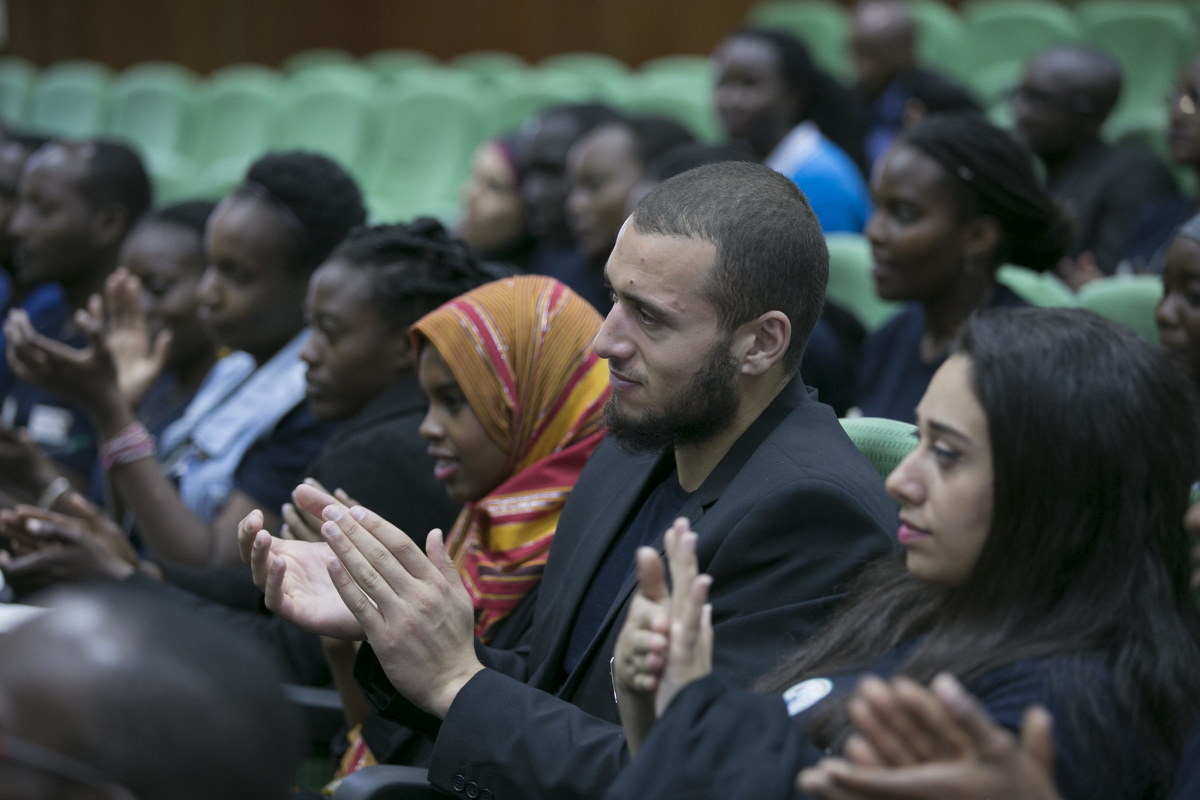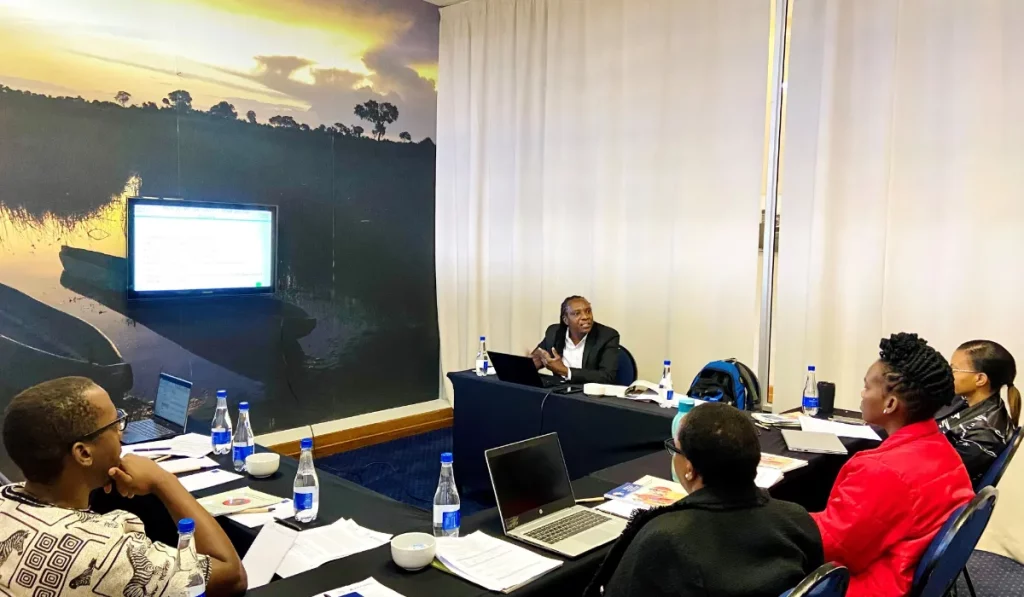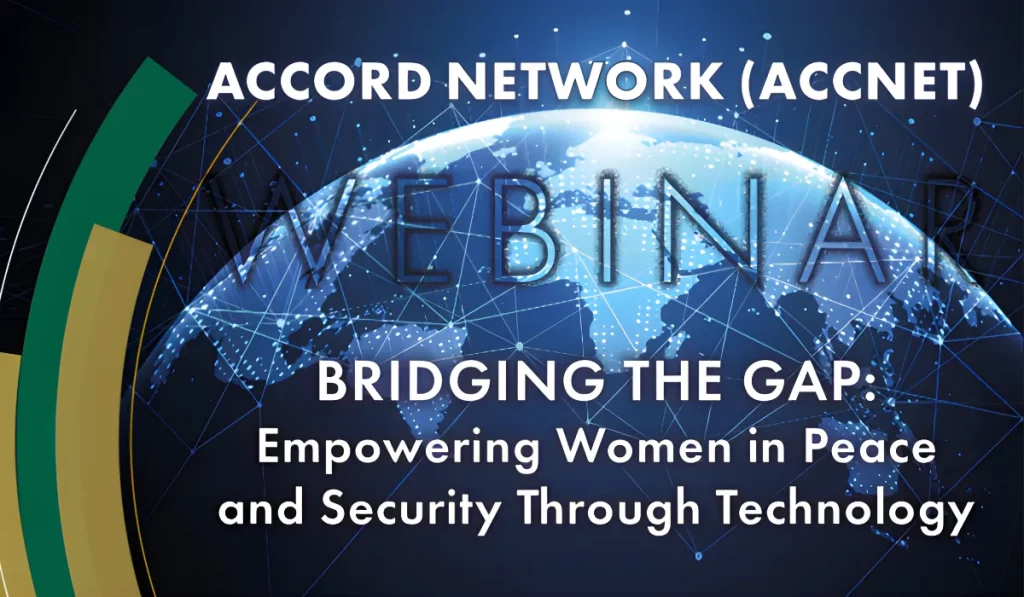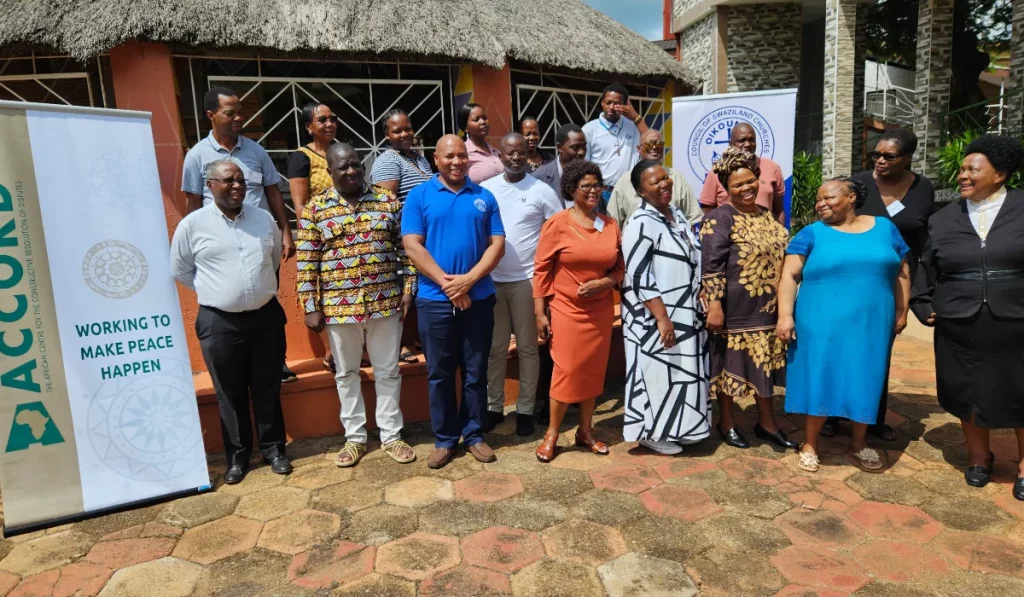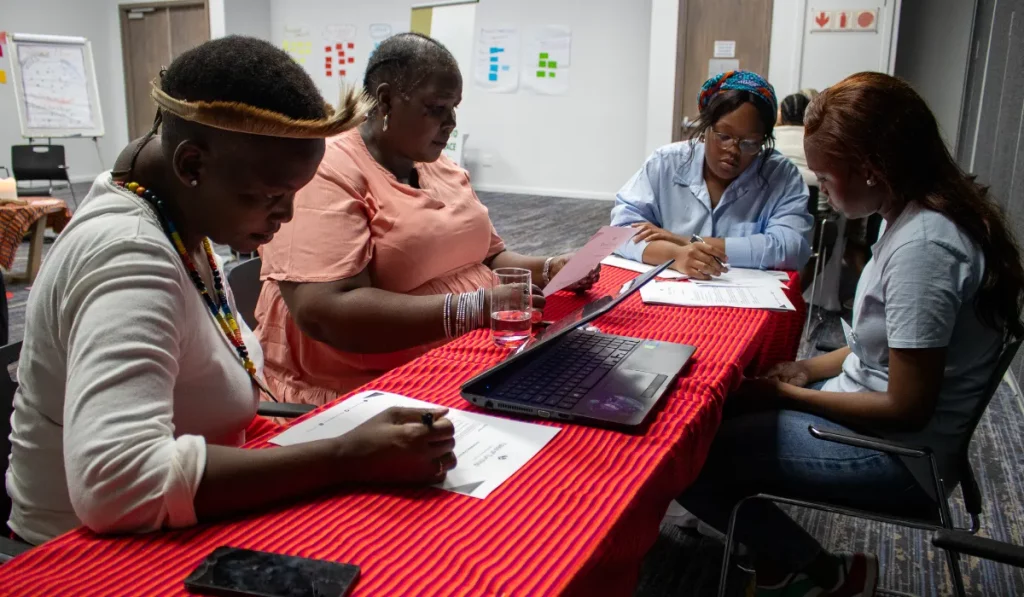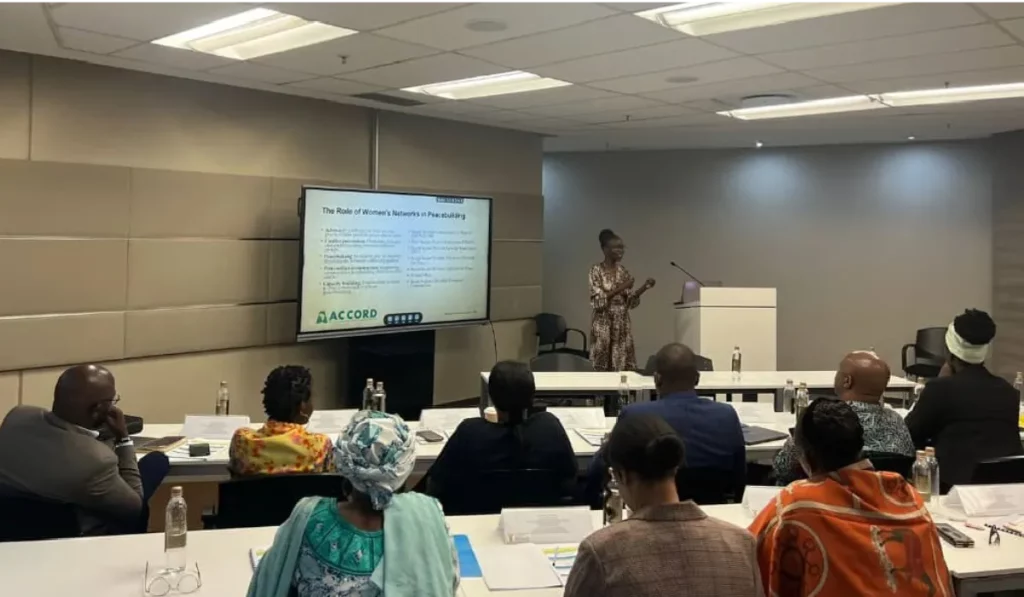Focused on tackling matters of Peace and Security and Regional Dynamics in the African Union, the African Peer Review Mechanism (APRM) hosted a youth webinar on the Impact of COVID-19 on Political Governance, Peace and Security in Africa. Starting with the Southern African region, the webinar was the first of a series of webinars that will take place in the different regions of the continent.
The kick-off session of the webinar series focused on taking stock of Southern Africa’s Peace & Security situation and the effects of the pandemic on emerging threats to peace and security; examining if COVID-19 is a conflict multiplier in the region; new security trends as a result of COVID-19; whether regional and continental architectures were prepared to manage conflicts during the pandemic and governance deficits and external interferences in Africa’s governance. The keynote address was delivered by Professor Eddy Maloka, CEO of the APRM Continental Secretariat, outlining that youth unemployment is a cross cutting issue in Africa and urging participants to think about how the discussions could strengthen the Youth APRM project to enhance the African Union’s Silencing the Guns Roadmap especially now that there are new drivers of conflict as a consequence of the Global COVID-19 pandemic. This series of webinars seeks to address with prominence, the role of youth.
ACCORD’s Executive Director, Adv. Vasu Gounden, gave a frank analysis and shared a presentation in the session on Taking stock of Southern Africa’s Peace & Security Situation & the Effects of the Pandemic on Emerging Threats to Peace and Security: Is COVID 19 a conflict multiplier in the region? What are the new security trends? Were regional and continental architectures prepared to manage Conflicts during the pandemic? What is the Way Forward? Adv. Vasu Gounden highlighted that the problems Africa is already facing include an exponential population growth, rapid urbanisation, a global economic slowdown, commodity crisis, climate change and disruptive technology. All this, while conflict on the continent is being driven by constitutional crises, elections, struggle over political hegemony, conflict over scarce resources (land, water, food, employment) and exploitation of identity (religion, ethnic and/or racial). In addition, the consequences of the current COVID-19 pandemic include health crises, economic crises, security crises and humanitarian crises. These crises will act as conflict multipliers that can lead to unprecedented social and political conflict within countries, therefore there is the need to mobilise local communities and other credible and influential people including youth to build resilience by mediating local conflicts and strengthening social cohesion. Adv. Gounden also made reference to the ACCORD COVID-19 Conflict Resilience Monitor which identifies and tracks COVID-19 related incidents that are related to the prevention, management and resolution of conflict, and reflects on the resilience of local and national capacities for peace.
The webinar was attended by representatives from the APRM Secretariat, the African Union Economic, Social & Cultural Council (ECOSOCC), South African Institute of International Affairs (SAIIA), Institute for Security Studies (ISS), South African Department of Public Service and Administration (DPSA) and the African Youth Ambassador for Peace from Southern Africa.
ACCORD’s participation in this webinar is relevant to the Institutions strategic goals, to contribute to strengthening skills to foster leadership of youth in peace and security initiatives; to strengthen the capacity of youth to participate in the prevention, management and resolution of conflicts and post-conflict reconstruction; and to strengthen youth organisations and networks to promote peace and enhance effective participation.

